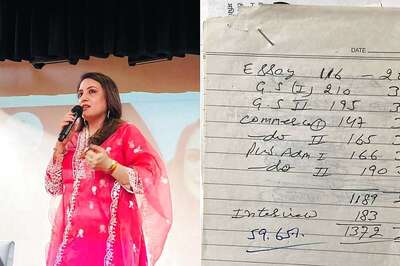
views
The central government is not considering proxy voting for non-resident Indians, the Lok Sabha was informed on Friday. In 2018, in the last Lok Sabha, a bill was passed to allow proxy voting rights to eligible overseas Indians. But the bill could not get to Rajya Sabha and lapsed due to the dissolution of the 16th Lok Sabha.
Union minister of state for law and justice, Arjun Ram Meghwal said “no such proposal is under consideration”. He was replying to MPs Gajanan Kirtikar, Hemant Tukaram Godse and Delkar Kalaben Mohanbhai who had asked the law ministry if the Centre was considering providing proxy voting facility to NRIs in the country.
As of January, the total number of overseas electors is 1,15,696 as per the Special Summary Revision 2023 conducted by the Election Commission of India. Overseas Indians have to register as voters and come to India to cast their vote. They have to show their original passport while voting.
A matter regarding this had also reached the Supreme Court to allow voters who may not be physically present in their constituencies to cast their vote, including NRIs and migrant labourers. In November 2022, the top court disposed of this petition.
In February 2013, the SC had directed the ECI to form a committee to look into the matter with regard to ways and means to facilitate voting for NRIs and migrant workers. The committee did its work and submitted the report.
The government had accepted the recommendations and came up with the 2018 bill to amend Section 60 of the Representation of the People Act, 1951, to enable the overseas electors to appoint a proxy to cast vote. After the bill lapsed, there has not been any development on the front, said officials aware of the matter.
Further, in March, then law minister Kiren Rijiju had informed Rajya Sabha that the government is considering a proposal from the ECI to facilitate electronically transmitted postal ballot systems for overseas Indian voters. He said the matter is under discussion with the ministry of external affairs to iron out logistical challenges involved in the implementation of the proposal.




















Comments
0 comment